If war comes tomorrow, here Russia can attack NATO - report from Suwalki
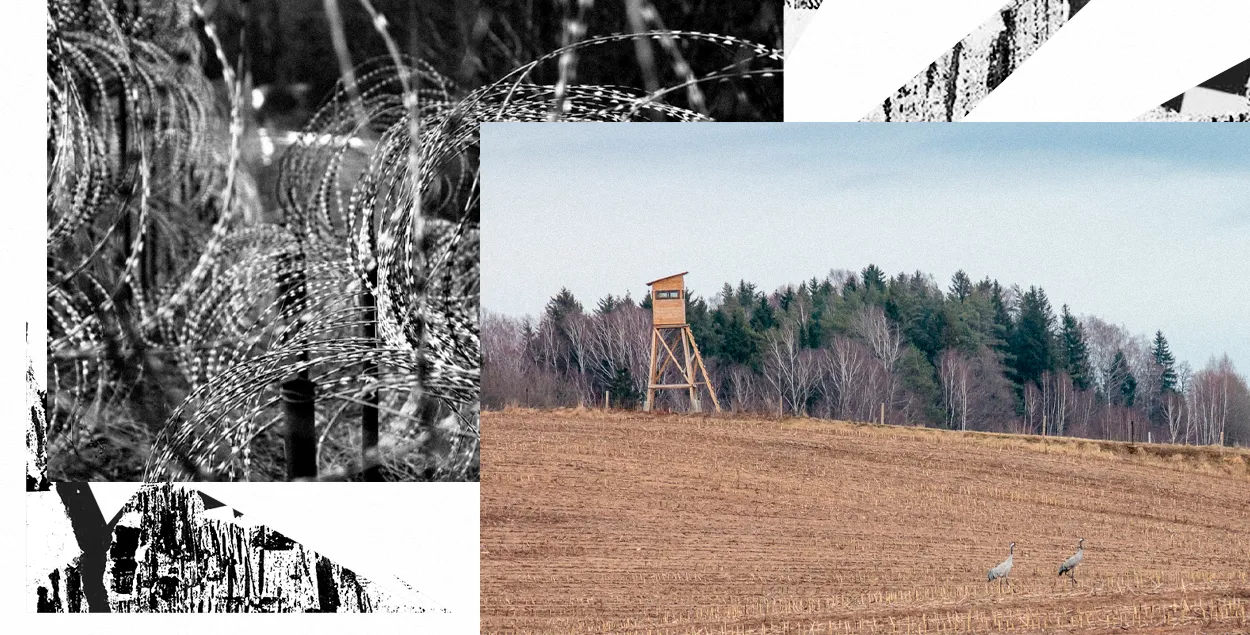
Suwalki / Photo by Rosół Mariusz / @rubanau_collage / @rubanau_collage
"Can you imagine a scenario where you send Russian troops into Poland?" - Tucker Carlson asks Russian President Vladimir Putin.
By "Poland," the American journalist is most likely referring to a specific place: the Suwalki gap. This is a small isthmus between Belarus and Russia's Kaliningrad region. It is where the borders of Lithuania and Poland - and Russia's interests - meet. Recently, it has been increasingly discussed in connection with World War III.
The German tabloid Bild, citing sources, says the Bundeswehr is considering a scenario in which Russia would attack NATO countries through Suwalki. The Bundeswehr says this is only a training scenario.
The same scenario is being considered by a Polish studio developing a war game called Play of Battle. The events begin shortly before Russia's full-scale invasion of Ukraine - and then, according to one scenario, the war moves here, to the Suwalki Corridor.
Euroradio correspondents decided to find out how peaceful Suwalki residents live and what they think about the war.
"We have a neighbor that we have"
Suwalki is a small town in Poland. It is closer to the Belarusian city of Hrodna than to the nearest large Polish city, Bialystok. There is a pedestrian mall in the center, lots of cafes. And it's very quiet.
We go to the tourist information office. In February there are few tourists here, but in the summer everything will be different. Visitors come for the popular blues festival, which is commemorated by graffiti and sculptures on the main street.
"Suwalki is a medium-sized town and it's very clean. Here you can walk from your home to the store, to work in 15 minutes, there are no traffic jams like in big cities like Warsaw or Tricity," says local resident Karol Szwierzbin. "Tourists come to Suwalki mainly for peace and quiet, but also for nature. Quiet, untouched nature.
Ukrainian Hanna was not looking for untouched nature - just a quiet place. She came to Suwalki from Donetsk.
"We left for Kyiv on June 1, 2014. We walked for 2 weeks with two suitcases, three children, with swimsuits... To wait for this moment. And we are still waiting. During that time we changed several cities. I lived in Ukraine, then I moved to Poland," says Hanna.
She has lived in Suwalki for 7 years:
"When I arrived, my youngest daughter was 9 years old. And I liked the fact that children can ride their bikes here safely, come back from a dance at 9 p.m. - and I knew for sure that nothing bad would happen to them. There is no crime here, everything is calm and friendly," Hanna tells us. "There is a very loyal attitude to people here, especially to Ukrainians. As long as I have lived here, I have never been discriminated against. And my children, when they came here, immediately felt at home.
The city is so quiet that we even feel a little uncomfortable stopping locals to ask:
"Where are the shelters in case of war?"
Our interlocutors are very surprised by this question. They are warming their hands on coffee glasses, picking up their children from school, buying magnets in the souvenir shop - and thinking about anything but the war.
In response to our questions, they shrug their shoulders:
"If it started today, we probably wouldn't know where to run. Except into the cellar," says one of the locals.
Another admits that we scared her with our question.
"For my mental health, it is important to filter this information somehow, not to believe everything," says the girl.
Many explain their calm with the "fifth article of NATO": if an ally of the alliance is attacked, the whole of NATO will try to defend it.
One resident of the region says the sounds of military helicopters constantly patrolling the border make her uneasy. They are not the sounds of war - but they are the sounds of the military, and they resonate very much with the usual silence of the region's unspoiled nature.
The tourist information center tells us that the town, like all the towns in the Suwalki region, is trying to prepare for the possibility of war. Not because they expect it - because it is impossible to predict what will happen.
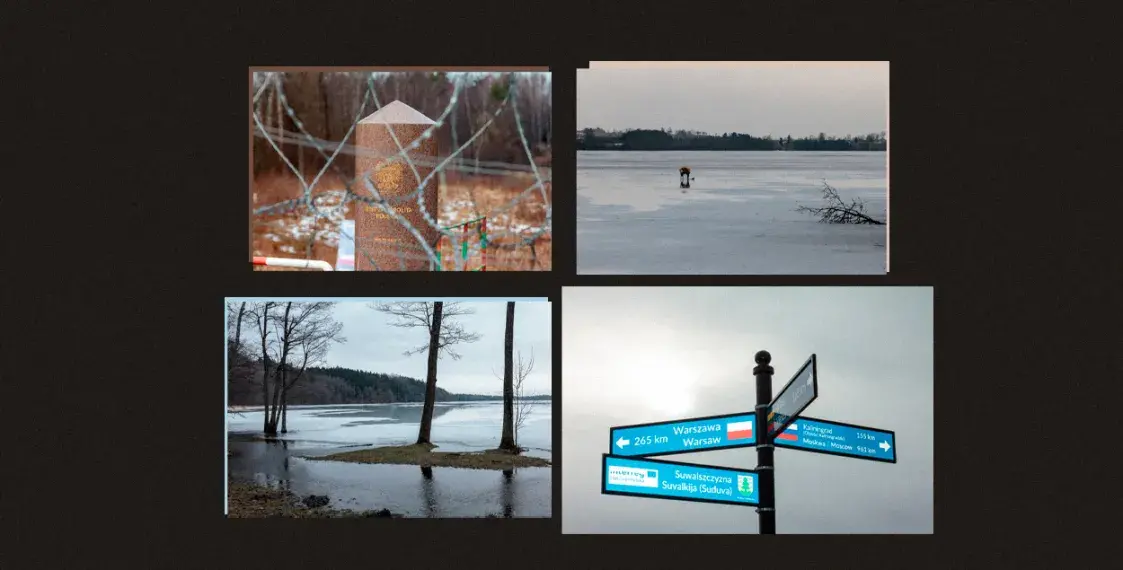
Photo by Rosół Mariusz
"Both the Uząd (Executive Committee - Euroradio) and the city authorities provided residents with information on where to find shelter," says Karol. "But I would not demonize the importance of the Suwalki corridor. Politicians often talk about the Suwalki corridor as a very dangerous place on the geopolitical map, but you have to consider not only what kind of neighbors we have, but what kind of landscape we have!"
There is the Suwalki Landscape Park - these are post-glacial areas. A lot of mountainous terrain. And this is far from an ideal landscape for troop movements.
Attitude towards the Russians
Putin says he will send his troops into Poland "only in one case".
"If there is an attack on Russia from Poland".
While Vladimir Putin accuses his neighbors of being bloodthirsty and hating Russians, we asked locals how relations with their neighbors from the Kaliningrad region have been all these years.
"Before the conflict in Ukraine, we had normal neighborly relations. People from the region liked to come to us to shop. I think they were also attracted by the standard of living in Poland. We perceived each other quite normally. We also went there. It's a slightly different world for us, but let's say it's not a demonstration of the greatness or inferiority of any nation. We had good neighborly relations," says local resident Teresa Szwerubska.
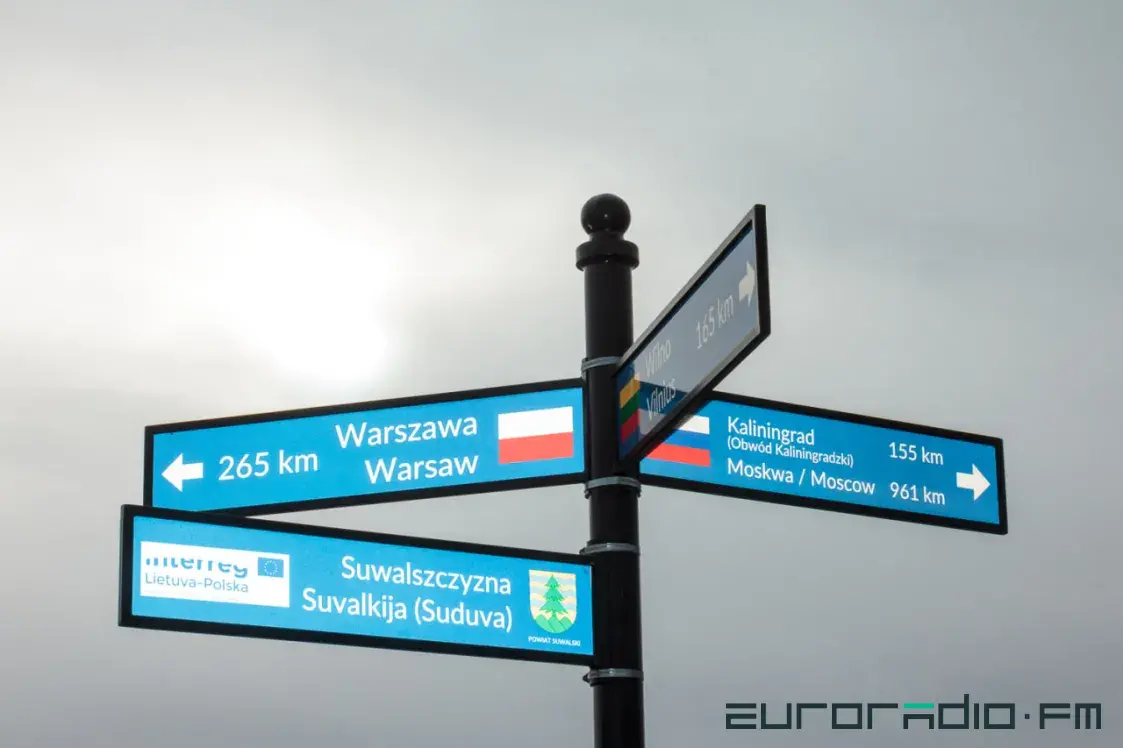
Karol agrees with her:
"Relations between ordinary people have always been good. Ordinary people in Kaliningrad, as well as ordinary people in Belarus, cannot be blamed for having such leaders in power. We can condemn Russia as a state for aggression, but this condemnation should not be applied to all residents. Because it's not their fault.
There are no Russians left in the local Bedronkas (a popular chain of stores in Poland), as entry to Poland is banned for residents of the Kaliningrad region, as well as for all Russian citizens in general.
"In a way, this is a pity. Because this region is geographically very close to us, now the border is closed and there is no chance for things to change," says Teresa.
Talk of a war that could start in the Suwalki corridor does not increase the chances of the Russians "shopping in Bedronka" again.
"I don't expect it. But I didn't expect an invasion in 2022 either"
Talk about the Third World War, which will begin in the Suwalki Corridor, began to appear after the publication of the German Bild. Journalists published a secret document of the Bundeswehr, which seriously considers the scenario of a clash between the armies of Putin and NATO.
We would have called this article "alarmist" if it were not for one thing. In November 2021, the same Bild wrote that in a few months Russia would attack Ukraine. And a few months later...
"Then they leaked their inside information. It was information about the plans that the Russian General Staff allegedly had for a military operation against Ukraine. And then a lot of people didn't believe Bild. How did they get this information in the first place? And secondly - well, it can't be, because there simply can't be a war. But it turned out that Bild was right," says political analyst Pavel Slyunkin. "Now Bild has published this map, but it's not about the inside information, it's about what this military operation of Russia would theoretically look like if it decided to go to war with NATO. And that's the fundamental difference.
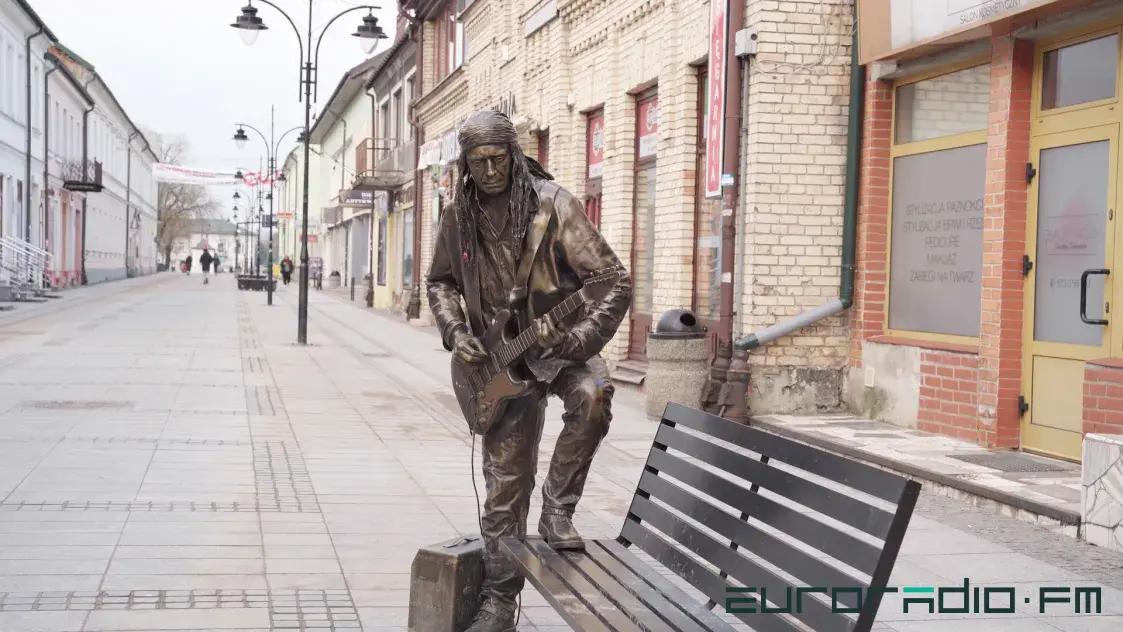
According to Bild, one scenario being considered by the Bundeswehr is an artificially induced "border conflict" and "riots with many casualties" in the area of the Suwalki Corridor in December 2024.
"At the time, many people laughed at Bild, now no one I know laughs at Bild," says Slyunkin. "And the fact that the context of our discussion has come to the realization that a war between Russia and NATO is not a fantasy scenario, but a very realistic possibility in the future, is something that not only analysts, but leaders of Western countries are talking about. And at the same time they are calling on society to prepare for a possible war with Russia. This says a lot. How the world has changed in the last few years.
Hanna Samoylenko, head of the organization "Ukrainians in Suwalki", does not expect a new war and does not think about it until someone asks a direct question. This time the "someone" was a Euroradio journalist:
"I don't think it will happen. But I want to say that I didn't think the invasion of 2022 would happen either".
Several Ukrainian women who are in the premises of the organization said that it was good that we did not ask them. We concluded that not everyone takes the possibility of a new invasion as calmly as Hanna.
"And here's what really worries me: my car is being repaired. What can I do when my car is in the shop? How do I get away? If the car was in the garage, there would be no problem at all," says Hanna.
But Putin is stirring things up, isn't he?
Just days before the full-scale invasion of Ukraine, Vladimir Putin assured that he was not preparing for war. He rebuked NATO countries for their harsh reaction to the movement of Russian troops near Ukraine's borders and ridiculed fears that Russia would go to war with NATO.
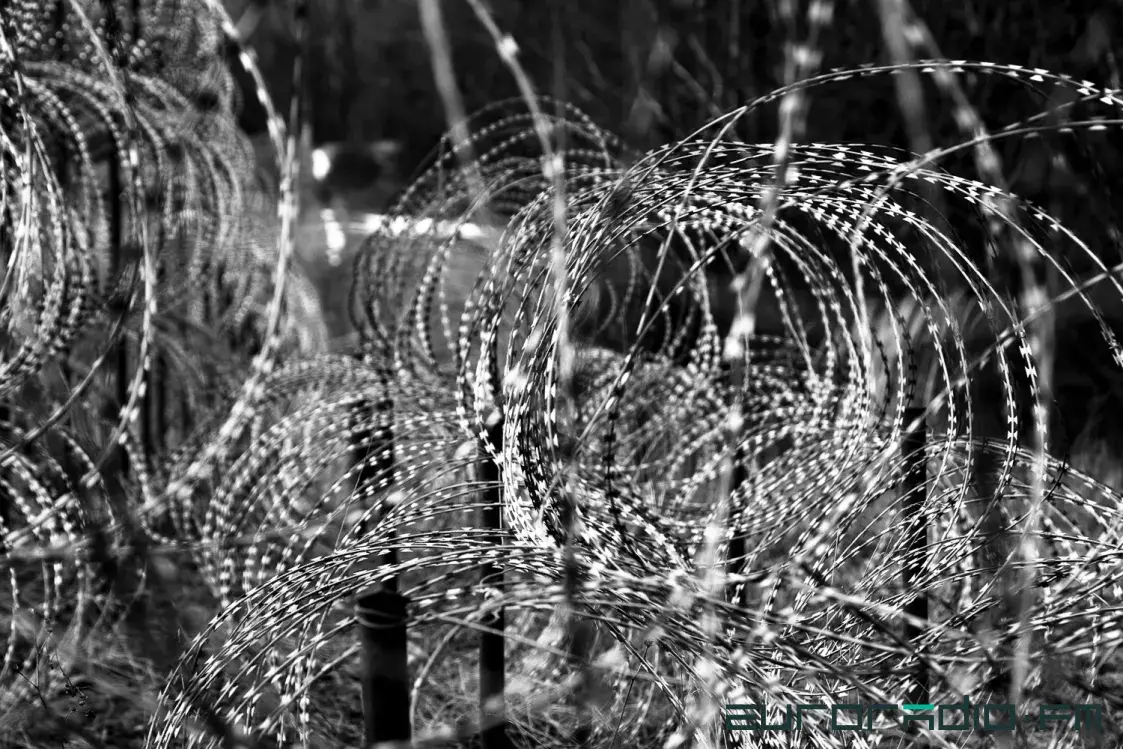
For now, Putin is not talking about war with Poland. "Unless Poland attacks first." But he is actually justifying Adolf Hitler's attack on Poland: according to him, if Poland had "amicably" agreed to give up the so-called "Polish Corridor" that connected Germany to Königsberg (now Kaliningrad), World War II would not have started.
We asked Pavel Slyunkin to explain why Putin invokes Hitler and the "corridor.
"When Putin talks about Hitler, he is implying that if Hitler had been accepted, there might not have been a world war. And that changes even Russian historical rhetoric. Before it always sounded different. Now it is a justification of Nazism, a policy that is absolutely illegal even in Putin's regime.
He compares the situation in Ukraine with the situation between Germany and Poland. You fought for some Danzig and Gdansk, while you should have given in and agreed, and we would not have lost tens of millions of lives.
And yet: is this an indication that you shouldn't have fought for Ukraine - or that you shouldn't fight for Suwalki?
"For now, I think they're playing information campaigns, trying to find out whether NATO and the allies will actually fight for every inch of the alliance's perimeter. This is an issue that many military analysts have been talking about since the attack on Ukraine. What if the war had started not against Ukraine but against the Baltic states? The U.S. would have been faced with the choice of sending its troops to fight, risking nuclear war, or freezing the front and not sending Americans to repel these territories. Maybe Putin would prove that NATO's Article Five doesn't work".
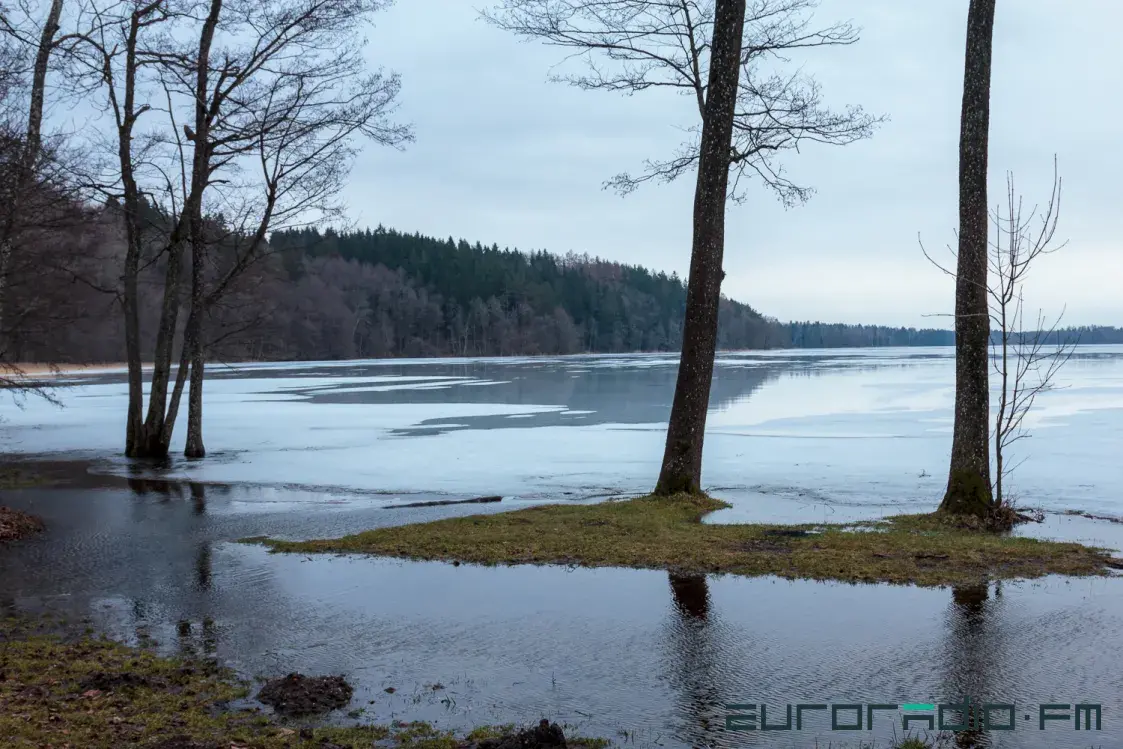
"Now they are trying to see if the United States will fight for every inch of NATO territory, as Biden says," says Pavel Slyunkin.
Back to the game "Play of Battle". It was announced this fall, and several shots from it were shown in the center of Warsaw. The main principle of Play of Battle is that the player can influence the course of events.
We asked Slyunkin what choices NATO countries can make to prevent a world war.
"Russia does not yet have the ability to wage this war. But if we see European countries and their military-industrial complex unprepared (and they haven't changed much since 2022, not even meeting their rather minimalist expectations of producing military hardware and ammunition for Ukraine), Russia will feel it has more incentive to attack.
And then we will see Russian troops on the territory of Belarus again. They will no longer be on the southern border, but closer to the western border. And by these signals we will be able to understand that something is being prepared.
We will see many more of these signals. But for now, Russia is still outside Avdiivka.
A week after our interview with Pavel Slyunkin, Russia took Avdiivka.
The cranes have arrived
We arrived at Tricity, the place where the borders of Poland, Lithuania and Russia meet. A year ago, this place looked different. Russia was still surrounded by a fence, but now the fence was higher, bigger and scarier.
This fence is a consequence of the migration crisis.
"It's monstrous," says Rosół.
He was born in Suwalki. He doesn't believe that Putin would dare to attack Poland and try to take over the Suwalki corridor. As we drive towards Tricity, Rosół draws our attention to the landscape: there are hills and lowlands all around. Convenient for defense and not at all convenient for attack," he says.
At the point where the three borders meet, there are signs indicating the distance to the capitals of each of the three countries. There are no tourists here today.
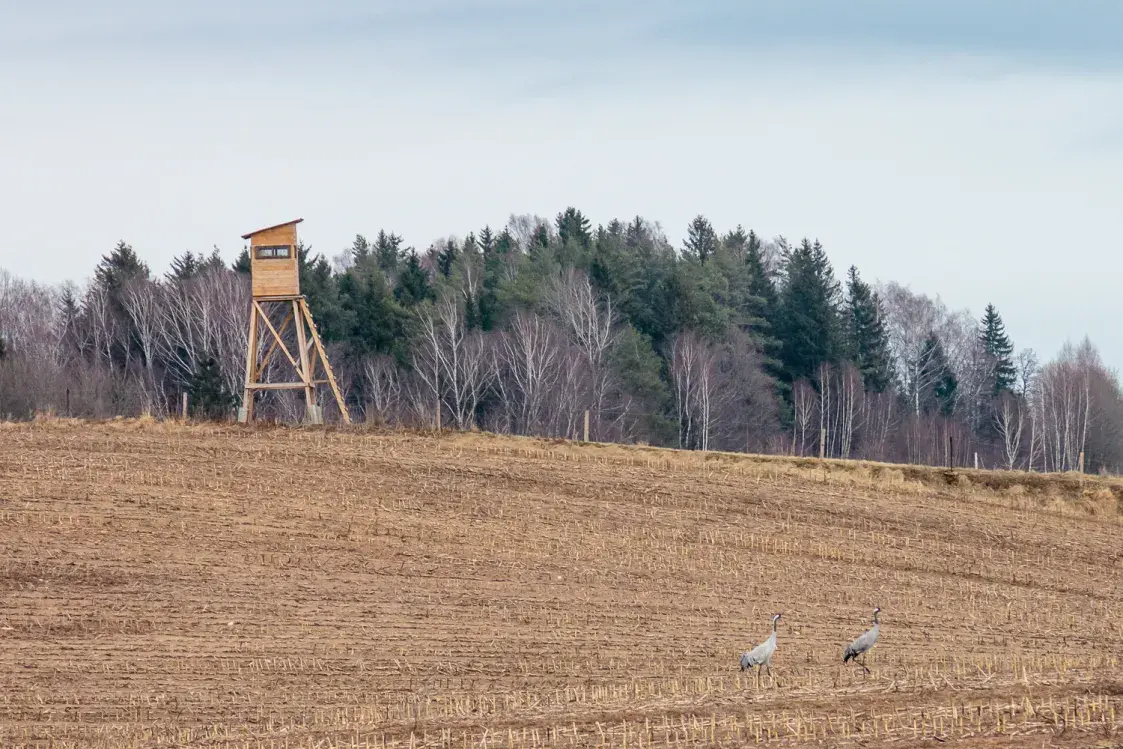
"Look, cranes!" - Rosół draws our attention to the field. "The cranes have arrived. That means winter is over. I wish the war was over too".
Sponsored by Mediaset


















